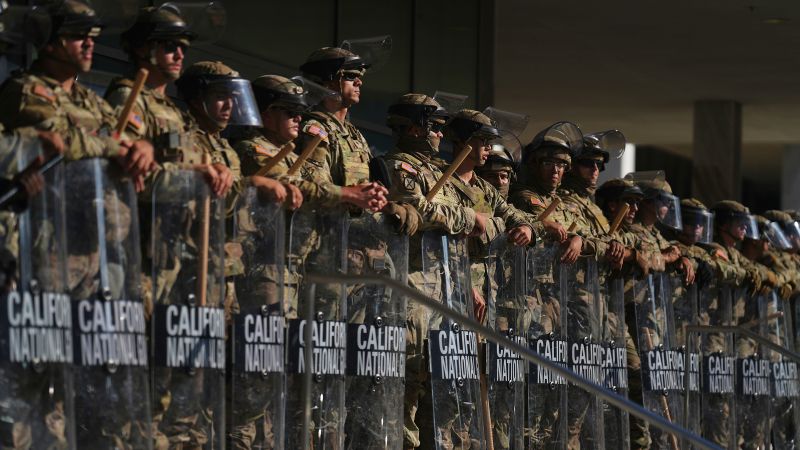A recent case in San Francisco has caught the public’s attention as it revolves around the deployment of federalized members of California’s National Guard. Initially dispatched to Los Angeles in response to the widespread protests against President Donald Trump’s immigration policies, approximately 300 troops remain stationed in the area. A federal judge, Charles Breyer, has openly expressed skepticism about the legality of their continuing presence within the state, prompting a series of probing questions aimed at Justice Department attorneys about the established limits of federal law enforcement powers.
During a three-day bench trial, which concluded recently, Judge Breyer sought clarity on whether federal forces are bound by specific limitations when it comes to protecting federal properties and employees. His inquiries included a particularly salient point he raised on the last day of testimony, questioning the necessity for federal troops to remain deployed once the original circumstance requiring their presence had diminished. “How does one look at this national police force, which goes out of where the threat was and starts executing other laws?” he questioned, indicating a deep concern over the potential abuse of such authority by federal officials.
Breyer’s comments on the matter, which included a reflection on the first day of the trials, displayed a nuanced understanding of the tension between national security and civil rights. He made it clear that while he recognized the risks faced by federal employees, he also harbored reservations about the expansive powers that could arise from unregulated federal troop deployments in civilian contexts. These comments appeared to align with the arguments made by California’s Democratic Governor, Gavin Newsom, who challenged the legality of the troop presence through litigation aimed at thwarting President Trump’s initial federalization order.
During the court hearings, Breyer hinted at his sympathies toward Newsom’s position, especially regarding the constitutional constraints on deploying military forces for domestic civil law enforcement, as set forth by the Posse Comitatus Act of 1878. This pivotal piece of legislation restricts the use of the U.S. military in domestic law enforcement roles, and it has become central to the ongoing dialogue about the legitimacy of current troop deployments.
The attorney representing the Justice Department, Eric Hamilton, argued that there exists no precedent or legal mechanism that could adequately challenge the presidential action of deploying the National Guard. This assertion prompted Breyer to draw an analogy to historical grievances against monarchical authority, pondering the practical limitations of legal recourse against such actions in previous centuries. Breyer indicated that unfettered presidential powers to send federal agents wherever a perceived threat to federal workers exists could lead to an overextension of military presence across states.
In response to Breyer’s concerns, Meghan Strong, the attorney for the state of California, invoked the founding principles of the United States, referencing James Madison’s intention as he drafted the Constitution. Strong asserted that Madison’s aim was to avoid the recurrence of situations where a president could use standing armies to exert control over civilian life, drawing a parallel to the abuses of power experienced under the British crown. She emphasized that the Posse Comitatus Act embodies a foundational principle opposing the military’s involvement in domestic matters, reinforcing the state’s position against the current federal military utilization scheme.
The case has garnered significant attention in light of the broader implications it carries for civil liberties and the use of military force. Since the deployment of federal troops began, they have played active roles in immigration enforcement within Los Angeles, participating in raids and detaining civilians in restricted areas. Despite the implications of their dual functions, the Justice Department maintains that their role is “purely protective,” asserting that such actions do not violate the foundations established by the Posse Comitatus Act.
Judge Breyer’s unresolved inquiries about the limits of federal enforcement will significantly influence the outcome of this pivotal case. His persistent questioning regarding the potential for a permanent national police force raises pressing concerns about future executive actions and the balance of power between federal and state jurisdictions. As he prepares to issue a ruling, the legal community and public will be keenly watching to see how this complex interplay of legislative, judicial, and executive powers unfolds in the courts.











